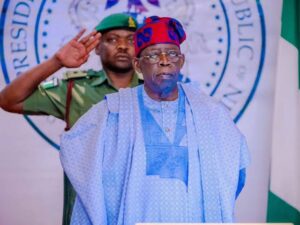
The presidency has released seven interventions of the President Bola Tinubu administration to boost Nigeria’s economy since May 29, when the government was sworn into office.
Fredrick Nwabufo, Senior Special Assistant to the President on Public Engagement, revealed this in a post on social media.
His words: “The Renewed Hope Agenda of President Bola Tinubu foregrounds reforming the economy for viability and sustainability, stimulating buoyancy and productivity, and devising pathways for sustainable growth and development.
“The Tinubu administration is making requisite interventions in critical sectors of the economy.
“These interventions are in conformity with the core objectives of ending poverty, achieving food security, economic growth and job creation, access to capital across all segments of society and the economy, inclusivity, security, fairness and rule of law, and anti-corruption.”
The interventions, according to Nwabufo, are:
1. FOOD SECURITY PLAN
The government is providing 225,000 metric tonnes of fertilizer, seedlings, and other inputs for farmers. Under this programme, there is concessionary capital/funding to the agricultural sector for the provision of fertilizer, processing, mechanisation, seeds, chemicals, equipment, feed, labour, etc. A strategic agency, the National Commodity Board, will review and continuously assess food prices as well as maintain a food bank that will be used as a price stabilisation apparatus for essential grains and other food items.
2. TAX REFORMS
One of the first official assignments of President Bola Tinubu was the issuance of four executive orders, easing concerns around certain aspects of taxation. The Committee on Fiscal Policy and Tax Reforms, recently, made sterling recommendations to enhance revenue collection efficiency; to ensure transparent reporting, and to promote the effective utilisation of tax and other revenues to boost citizens’ tax morale; to foster a healthy tax culture, and drive voluntary compliance. The President has directed the immediate implementation of the recommendations.
3. SUPPORT FOR SMEs
The Tinubu administration is providing support for small-and-medium-scale enterprises with funding worth N125 billion. SMEs and the informal sector are seminal to the industrialisation agenda of the administration. In all, there is 500 billion naira worth of intervention funds planned for SMEs and the agricultural sector.
4. CBN REFORMS
The unification of foreign exchange rates, jeopardising arbitrage; lifting of FOREX restrictions on the importation of 43 items to funnel out pressure from the parallel market and stabilise price, the expected $10 billion FOREX inflows to improve liquidity and stabilise the market, and other ongoing reforms to strengthen the naira and tackle inflation.
5. DIGITAL ECONOMY INVESTMENTS
The digital economy is one of the critical sectors receiving attention for its pivotality as a high-employment sector. Job creation is a top priority of the President. The Federal Ministry of Communications, Innovation, and Digital Economy, recently launched the Nigeria Artificial Intelligence Research Scheme to fund 45 consortia of startups and researchers. This is one in a league of other schemes that will be launched to create opportunities for Nigerians in that sector.
6. SUPPORT FOR MANUFACTURING
The Tinubu administration plans to spend N75 billion to strengthen the sector. The government will fund 75 enterprises with great potential to stimulate sustainable economic growth, accelerate structural transformation, and improve productivity. Each of the 75 manufacturing enterprises will be able to access N1 billion credit at 9 per cent per annum with a maximum of 60 months’ repayment for long-term loans and 12 months for working capital.
7. TRANSPORTATION INTERVENTION
The federal government has made provision to invest N100 billion to acquire 3000 units of 20-seater CNG-fuelled buses for mass transit at an affordable rate. These buses will be shared to major transportation companies in the states, using the intensity of travel per capital. Participating transport companies can access credit under this facility at 9 per cent per annum with 60 months’ repayment period.
“These reforms and programmes, and many others, will give a fillip to the economy and bring ease to citizens,” Nwabufo added.
